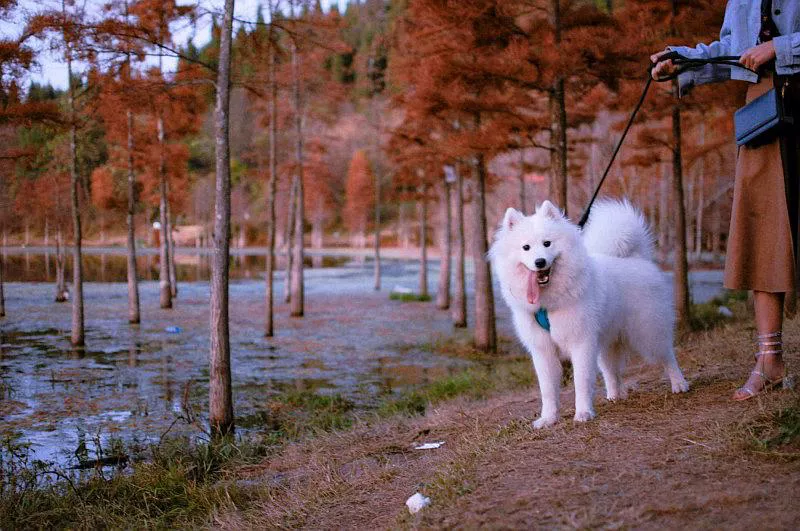As winter sets in, senior dogs face unique challenges that require extra care and attention from their owners. Cold weather can exacerbate existing health issues, and older dogs are particularly vulnerable to problems like joint pain, weakened immune systems, and even hypothermia. Experts Sean McCormack, Head Vet at Tails.com, and Carolyn Menteith, Behaviourist, offer vital advice for ensuring that senior dogs remain comfortable and healthy during the cold winter months.
Challenges Senior Dogs Face in Winter
Arthritis and Joint Pain
As the temperature drops, senior dogs with arthritis often experience increased stiffness and discomfort. Cold weather can cause muscles and joints to tighten, making movement painful and difficult. For dogs already suffering from arthritis, these symptoms may worsen, requiring additional attention from their owners.
Hypothermia and Temperature Regulation
Senior dogs may struggle to regulate their body temperature as efficiently as they once did. As they age, dogs often lose muscle mass and fat, which reduces their ability to stay warm. This makes older dogs more susceptible to hypothermia and frostbite, even in relatively mild conditions. While the UK rarely experiences extreme cold, it is still important to monitor older pets closely during the winter months.
Weakened Immune System
Like humans, older dogs often have weakened immune systems, which makes them more prone to infections and respiratory illnesses, especially in the colder months. Owners should be vigilant for signs of illness and seek veterinary care if any symptoms arise.
Reduced Energy and Fatigue
Many senior dogs become less active as they age, and the cold weather can make them even more lethargic. Reduced activity levels can lead to mobility issues and, in some cases, weight gain. It’s crucial to balance keeping them warm and comfortable with encouraging mild exercise, tailored to their individual needs.
Risk of Slips and Falls
Icy surfaces pose a particular danger to senior dogs, who may already have weakened muscles, brittle bones, or balance issues. Slippery pavements or snow-covered roads can lead to painful falls, so it’s important to choose safe, stable walking routes.
Top Tips for Senior Dog Care in Winter
1. Keep Your Dog Warm and Comfortable
Senior dogs should be kept indoors as much as possible, especially during particularly cold spells. If they enjoy outdoor walks, ensure they are appropriately dressed in warm coats or sweaters, and try to avoid areas where roads or pavements have been salted, as this can irritate their skin. Short, gentle walks close to home are ideal to avoid overexertion.
2. Provide Mental Stimulation
Cold weather days don’t have to mean inactivity for your dog. Indoor play and mental enrichment activities are essential for keeping their minds sharp. Puzzle toys, treat-dispensing devices, and simple training exercises can provide both mental stimulation and a sense of connection with you.
3. Ensure Comfort at Rest
If your senior dog seems reluctant to leave their bed or is struggling with stiffness, respect their need for rest. Ensure they have a warm, cozy spot to relax in, away from drafts, with plenty of blankets for added comfort.
4. Monitor Eating Habits
Changes in appetite are common in older dogs, particularly if they are less active during winter. If your dog stops eating or shows signs of lethargy, consult a vet to rule out any underlying health concerns. Changes in eating habits can sometimes indicate health problems that require attention.
5. Adjust Physical Activity Levels
While senior dogs may not be as energetic as they once were, it’s still important to maintain a routine of light exercise to prevent mobility issues. If outdoor walks are not feasible due to the cold, substitute with indoor activities like gentle play or training.
Final Thoughts
Winter poses significant challenges for senior dogs, but with the right care, you can ensure that your pet remains healthy, happy, and comfortable during the colder months. While you don’t need to brave the harshest conditions, consistent attention, warmth, and gentle exercise are key to keeping your senior dog safe through winter’s chill.
Related topics:
Passenger Criticized for Bringing Giant Emotional Support Dog on Flight
Top 10 Dog Breeds for Unmatched Companionship
Dog’s Jealous Reaction to Owner’s Kiss Steals Hearts Online


